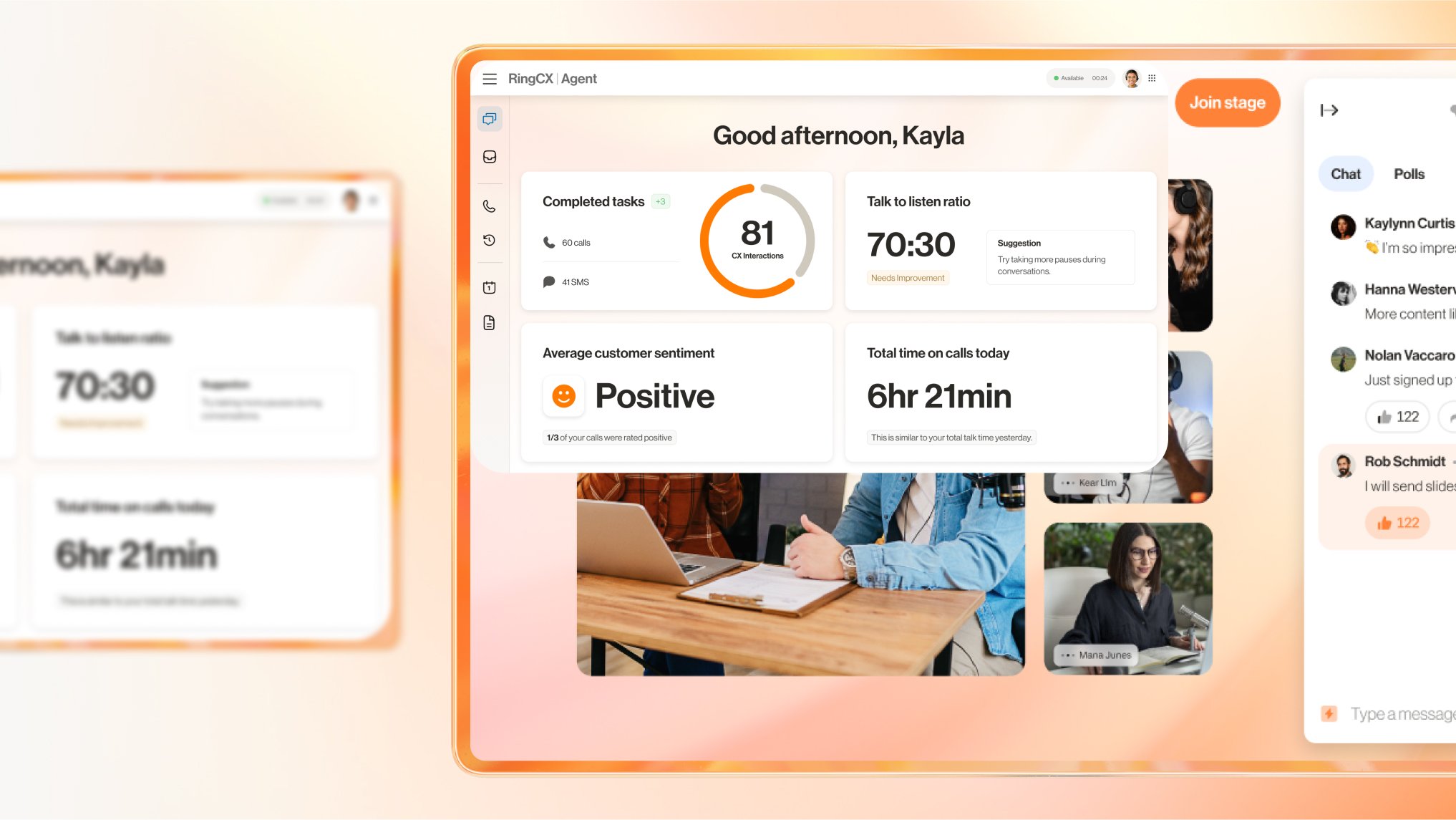Customer expectations have risen dramatically. According to a recent study by Deloitte, companies that lead in service innovation achieve 57% more of their strategic goals than less advanced organizations. They are 2.5 times more likely to report excellent employee satisfaction, and 4.6 times as likely to achieve excellent customer satisfaction.
Businesses are shifting their focus to customer-centric strategies, and contact center solutions play a pivotal role in shaping that experience. The growing use of artificial intelligence (AI), automation, and omnichannel support has transformed the way organizations interact with customers, making it easier to deliver personalized, efficient, and responsive service.
Here are some tips on choosing the right solution for your organization, with a brief overview of the ten leading systems for contact center management.
Criteria for evaluating contact center solutions
Let’s begin with a review of key criteria for selecting the right contact center solution for your business:
Scalability
As businesses grow, their needs will naturally evolve. Scalability ensures that the chosen solution can adapt to increased customer demand without compromising performance or requiring substantial new infrastructure investments. Whether your company is expanding to new markets, growing through acquisition, or dealing with sudden spikes in activity, solutions that allow seamless scaling up (or down) are a huge plus.
Omnichannel support
Today’s consumers expect to communicate with businesses through their preferred channels, whether via phone, email, online chat, social media, or messaging. Solutions with robust omnichannel support ensure that customer interactions are consistent and smooth across all platforms, providing a unified experience that helps improve satisfaction and retention rates. Cloud-based solutions offer a substantial additional benefit; new features and innovations are rolled out automatically, so support for new channels and functions is available immediately.
AI & automation
AI-powered features are rapidly becoming a must-have component of any contact center solution. Chatbots, sentiment analysis, and automated workflows enhance the speed and quality of service. According to HubSpot, 55% of customers prefer self-serve customer service channels over a conversation with a call agent. AI-driven self-service reduces the burden on human agents, providing intelligent responses to common customer inquiries, predicting customer needs, and routing queries more efficiently.
Integration capabilities
Contact center solutions should seamlessly integrate with other business tools such as CRM systems and analytics platforms. Integration enables automation, which increases both productivity and accuracy. It also ensures contact center agents can access complete information, without toggling between multiple applications. That enables more personalized customer interactions and better-informed business decisions.
Security & compliance
Data security has become a top concern for businesses and consumers. This is especially true in the case of highly regulated industries such as healthcare and financial services, where oversight is strict, and non-compliance can be very costly. Look for a contact center solution that meets rigorous compliance standards for your industry, such as GDPR, HIPAA, GLBA, or PCI-DSS. Adherence to those standards should be supported by independent audits. Also ask for published case studies that demonstrate a successful track record with highly regulated businesses.
Pricing and cost efficiency
Cost efficiency plays a significant role in the long-term sustainability of any software system. Contact center solutions come with various pricing models, including pay-as-you-go, subscription-based, and usage-based models. Evaluate the total cost of ownership, taking into account the upfront fees, recurring costs, and any hidden fees for features like AI or advanced integrations. Beware of vendors that offer low entry-level pricing with steep ramp-up costs for growing businesses.
Top 10 contact center solutions
Now that we have reviewed some of the top criteria for selecting a contact center solution, let’s look at the top 10 products available today:
RingCX
RingCentral’s RingCX offers robust features to enhance customer interactions, with omnichannel support enabling seamless communication across all platforms. Its AI-powered tools include intelligent routing, sentiment analysis, and automated workflows, setting it apart from many competitors. RingCX also excels in integration, allowing businesses to easily connect with CRMs, workforce management tools, and other essential systems. As a cloud-based solution, it is highly scalable, giving businesses unlimited room to grow and respond to sudden peaks in demand. RingCX is robust enough for enterprises, but works very well for smaller businesses, making it suitable for organizations of all sizes.
Genesys
Genesys is well known for its comprehensive contact center solutions, offering advanced AI-driven tools and omnichannel support. With a focus on personalization and automation, Genesys enables businesses to deliver superior customer experiences at scale. Given its comprehensive coverage, however, Genesys comes at a relatively high price point compared to competitors, and its complexity may be challenging for many small and midsize businesses.
Five9
Five9 offers a cloud-based contact center platform that emphasizes flexibility and automation. It comes with AI-powered features, including predictive analytics and automated workflows, which streamline operations. The platform is designed for scalability, making it suitable for both small businesses and large enterprises, but it offers limited integration capabilities when compared to other products on this list.
NICE inContact
NICE inContact is known for its scalability and robust omnichannel support. It is highly adaptable to the needs of growing businesses and offers a variety of AI-driven automation tools to improve efficiency. Like RingCX, this solution is particularly strong in its workforce optimization capabilities. NICE inContact has a reputation for complexity, however, and may require substantial resources to implement.
Avaya OneCloud
Avaya OneCloud is a cloud-based contact center solution that offers unified communications, ensuring voice, video, and messaging services are fully integrated. It’s a flexible platform that supports AI tools and omnichannel communications, making it a popular choice for businesses looking to modernize their contact centers. Because Avaya is aimed squarely at the enterprise market, though, it is unlikely to be a good fit for small and midsize businesses. Pricing, likewise, is higher than many of the other solutions on this list.
8×8 Contact Center
8×8 Contact Center seamlessly integrates with the company’s unified communications as a service (UCaaS) platform, offering a unified experience for businesses that require both communications and contact center functionality. Like RingCentral’s RingCX, it is especially well suited for businesses looking for an all-in-one solution, offering strong omnichannel support and easy integration with CRM tools. However, 8×8 falls behind many of its peers when it comes to AI capabilities.
Cisco Contact Center
Cisco Contact Center offers robust security features, making it suitable for businesses with stringent security and compliance requirements. It integrates well with CRM tools and offers strong AI-driven features, including voice recognition and intelligent call routing. Given the company’s focus on enterprise-level clients, however, Cisco Contact Center is likely to be too expensive for most smaller organizations.
Talkdesk
Talkdesk offers AI-driven automation and strong omnichannel support, making it a choice for businesses that want to leverage technology for customer service improvements. Its easy-to-use interface and comprehensive analytics features are also notable strengths. Like many of the other products on this list, however, its price point is relatively high for smaller businesses.
Amazon Connect
Amazon Connect is known for its pay-as-you-go pricing model which makes it a flexible and cost-effective solution for businesses of all sizes. Its cloud-based infrastructure offers a high degree of scalability, and it integrates well with other Amazon Web Services (AWS) tools. Through its work with some of the most security-conscious organizations in the world, Amazon understands security and compliance, delivering strong capabilities in this area. This product offers surprisingly weak AI features, however, compared to its competitors, and it may be too early to draw clear conclusions about the strength and direction of the product.
Zendesk Talk
Zendesk Talk integrates seamlessly with the company’s CRM software, making it a reasonable option for businesses that already use Zendesk. This solution is simple to use, with an intuitive interface and reliable omnichannel support. Having said that, it lacks some of the more advanced AI features found in competitors, limiting its potential return on investment.
RingCentral: the right choice for successful contact centers
RingCentral’s RingCX offers the strongest all-around solution for contact center management, notable for its scalability, omnichannel support, and cutting-edge AI-powered features. The product’s seamless integrations with other business tools, flexible pricing, and comprehensive security features make it an ideal option for companies looking to future-proof their customer service operations.
RingCentral offers a fully integrated UCaaS that combines all of a company’s business communications under one roof with robust AI-powered features that drive productivity, efficiency, customer excellence, and employee satisfaction. RingCentral’s customer case studies document a history of satisfied clients.
Interested in learning more? Talk to one of RingCentral’s contact center experts today to discover how RingCX can transform customer service excellence into a competitive advantage for your business.
Originally published Oct 21, 2024





